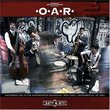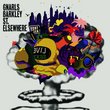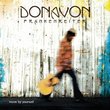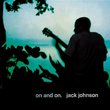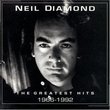| All Artists: Desmond Dekker Title: Original Rude Boy Members Wishing: 2 Total Copies: 0 Label: Music Club Original Release Date: 5/20/1997 Release Date: 5/20/1997 Genres: Alternative Rock, International Music, Pop Styles: Ska, Reggae Number of Discs: 1 SwapaCD Credits: 1 UPC: 614475002423 |
Search - Desmond Dekker :: Original Rude Boy
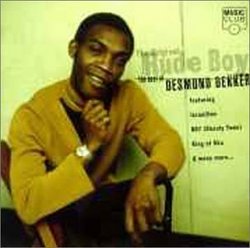 | Desmond Dekker Original Rude Boy Genres: Alternative Rock, International Music, Pop
|
Larger Image |
CD DetailsSimilarly Requested CDs
|
CD ReviewsA good primer Sean M. Kelly | Portland, Oregon United States | 09/17/2000 (4 out of 5 stars) "Desmond Dekker was undoubetly the most famous of all reggae artists until the emergence of Bob Marley. His reign over reggae lasted a good 10 years plus, and what he did in that period is covered rather nicely in this colection.As the 1st track on this collection, "King of Ska," would imply, Dekker began his career (in the early 60's under the guidance of the famous Leslie Kong, who would also guide the very young Wailers)in the midst of the Ska craze. Dekker wasted little time putting together his tight backing group, the Aces, and with them scored an astounding 20 number one hits in Jamaica in the mid to late 60's. "King of Ska," "Honour Your Mother and Father," (his first record ever made, from 1963), and "Get up Edina," are excellent examples of his Ska period.The rise of rude boy and rocksteady in the late 60's saw Dekker change paths to meet the craze, and with continued success, as shown by his James Bond- inspired hit "007 (Shanty Town)," as well as "Rude Boy Train," "Music Like Dirt," and "Mother's young Girl."The crowning acheivements for Dekker were the smash hits "Israelites," (which was a number 1 hit in 1969- the first song to do so in the UK and a top 10 hit in the US at the same time; again in 1975 and a top 10 hit yet again in the early 80's) the follow-up top 10 smash "It Mek," and his tour de force, the Jimmy Cliff penned "You can Get It If You Really Want," from the smash "The Harder They Come" film. each song solidified Dekker's dominance of reggae in Jamaica, the UK (where Dekker moved to in 1969), and even in the closed markets of America.While the rest of the album is chock full of good tracks, such as "Pinkney Gal," a minor hit from 1970, and some good dub tracks, the lack of a 5 star rating is due to what the lp is missing. Many of Dekker's rocksteady hits are conspiciously missing from this lp, such as his amazing "Unity," (from 1967, which won him 2nd place in the Jamaican Song Festival from that year), "Hey Grandma," "Rudie Got Soul," "Sabotage," (all #1 hits from '67-'69) and "Sing a Little Song," a top 20 poppy reggae hit from 1975.It is a pity this collection lacks in these tunes, but overall, the lp is a good representation of Dekker's canon, and well worth getting to see why Dekker ruled the roost as long as he did." Desmond is SKAying all the way through!!!!! Urbano Rattazzi (urbanorattazzi@hot | Buenos Aires, Argentina | 03/27/1999 (5 out of 5 stars) "This is the upmost, greatest, most incredible Dekker recopillation. Not only the right choice of songs but, also, arranged in a perfect order: a spectacular entrée with King of Ska situates us immediately on a faraway beach moving our hips to the hypnotic rythm of freedom . Then we start a journey through happiness which has its summit in It Mek. Finally for us to want to play the record once again there is a final version of King of Ska which delights our already-drunken ears. So we immediately feel the will to contrast it with the first version, so we start the record once again, and then over and over again... forever..." One of the best jamaican musicians in a great package Danny Harding | SLC,Utah | 11/18/2000 (5 out of 5 stars) "The roots of the great rude boy sound can be tranced to Desmond Dekker he mixed elements of rock steady and ska with protest themes that he encountered in the Shantytown of Kingston. Along with other greats like Derrick Morgan, he also established skinhead reggae in the late sixties"
|

 Track Listings (16) - Disc #1
Track Listings (16) - Disc #1